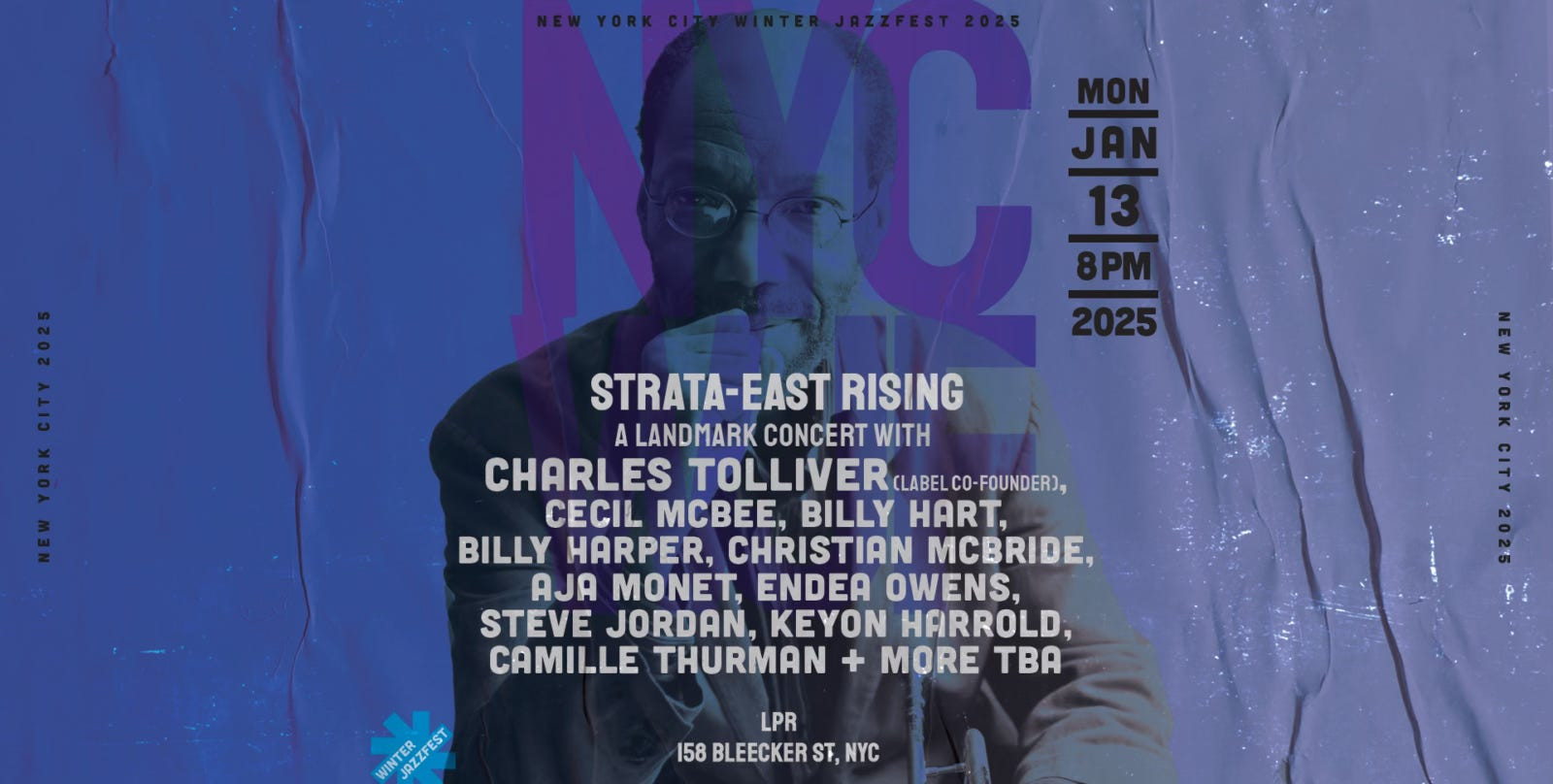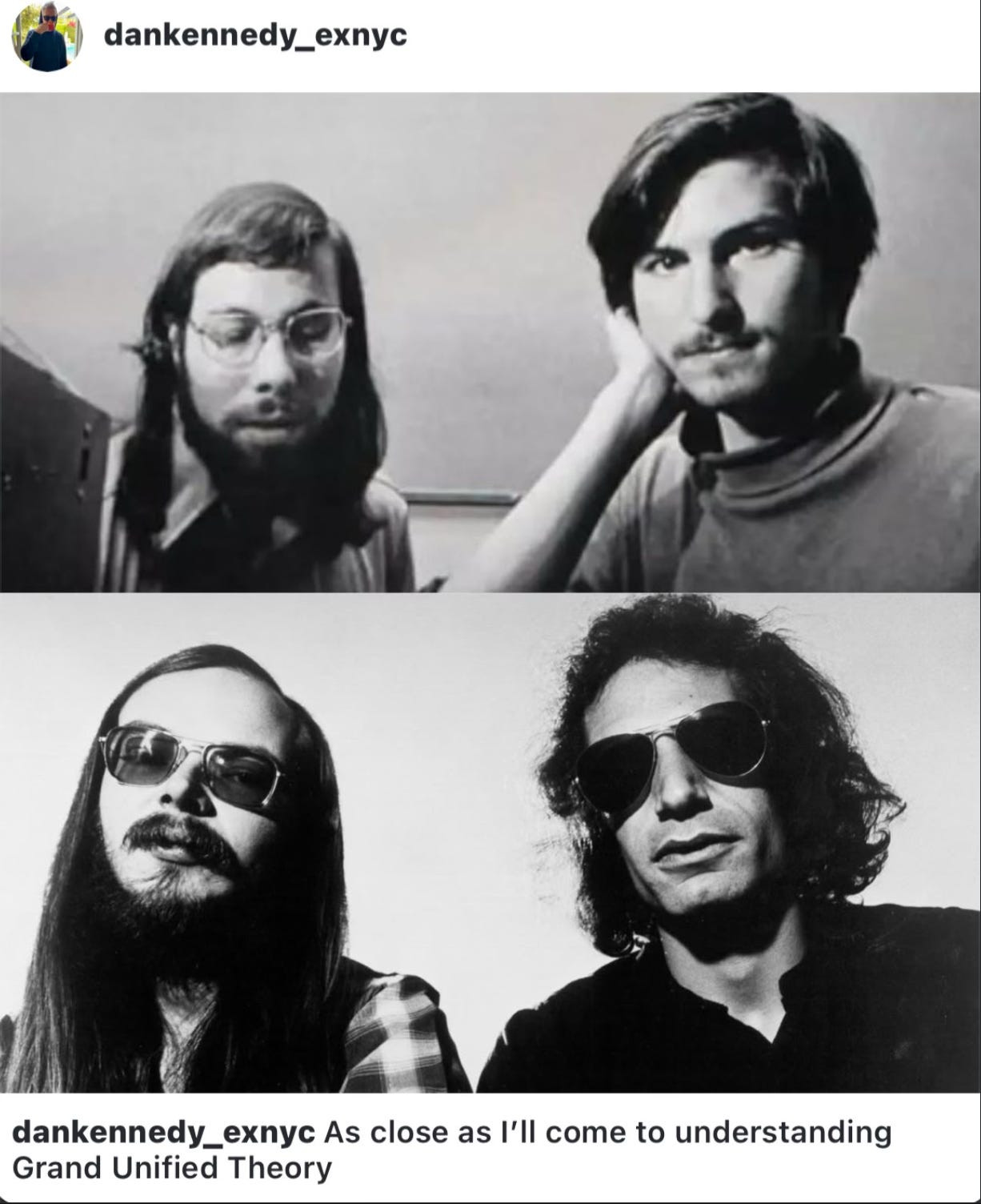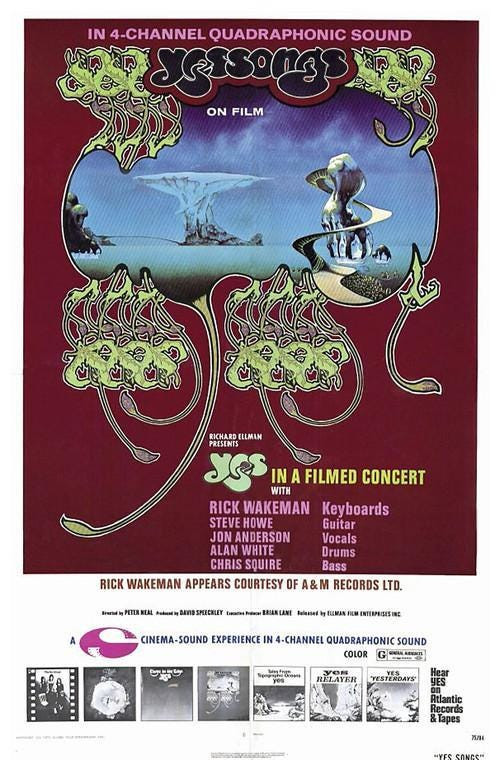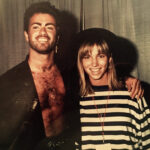Happy New Year, everyone, and welcome to 2025! I trust you all had a wonderful holiday season and are looking forward to the year ahead. As we step into this new year, it’s a milestone for both this Substack, which is just over a year old, and my Jazz and Coffee Instagram, celebrating its tenth anniversary. There’s a lot of overlap between these two platforms, so I want to express my sincere gratitude to all of you on both: thank you. Your likes, comments, shares, and restacks are deeply appreciated. I’m excited to bring you even more content in the coming year – I’ve been busy writing over the holidays and have much to share. But first, I’m eagerly anticipating the Jazz Congress and NYC Winter Jazzfest kicking off this week. The week promises insightful panel discussions and, more importantly, a lineup of incredible jazz performances. A highlight for me is the Strata-East Rising event, a rare opportunity to witness the legendary Charles Tolliver alongside an amazing ensemble, paying homage to the iconic Strata-East label.
 Charles Tolliver Strata-East Rising event at NYC Winter Jazzfest
Charles Tolliver Strata-East Rising event at NYC Winter Jazzfest
A Year in Liner Notes: From Jazz to Yes Songs
2024 was a significant year for my work as a liner notes author. It was a true honor to contribute to Blue Note Records for the first time, writing sleeve notes for Wayne Shorter’s Odyssey of Iska and Donald Byrd’s Kofi. I also had the privilege of delving into the world of progressive rock, crafting liner notes for Yes’s Fragile and Relayer for Rhino/Warner Music. Adding to the Bill Evans legacy, I wrote notes for the Craft Recordings reissue of Explorations, shortly after Marcus J. Moore invited me to contribute a piece on Scott LaFaro for his New York Times “Five Minutes” jazz series. Looking ahead to 2025, I’m excited to share that I’ve already penned liner notes for several upcoming jazz and rock releases, with more in the pipeline! First up is the Jazz Crusaders’ Freedom Sound, the inaugural Blue Note Tone Poet release of 2025. While The (Jazz) Crusaders are widely known for their late 70s crossover hit “Street Life,” their earlier work for Pacific Jazz, comprising around 20 albums, is equally compelling. I thoroughly enjoyed exploring their formative years in these liner notes. Stay tuned for more announcements!
Turntable Upgrade: Shifting Gears in Audio
Jazz and Coffee HQ has a new centerpiece:
The Technics SL-1210GR2, equipped with a Dynavector 20x2H Moving Coil Cartridge, has taken its place in my main listening room. The Rega P3, a fantastic turntable in its own right, has been relocated to my office setup. My current main room audio system now consists of:
- Technics SL-1210GR2 w/Dynavector 20x2H Moving Coil Cartridge
- Furutech Alpha Design Labs GT40 phono stage
- Piega 501 Gen 1 wireless speakers (Roon Ready)
- Roon Nucleus Titan with 2X8TB Samsung EVO SSD drives
I’ll be sharing a detailed post soon explaining my reasons for this upgrade and providing a closer look at my listening setup.
The Internet’s Dichotomy: Love and Frustration
Why I Love the Internet Today:
 Steve Jobs and Steve Wozniak of Apple, Walter Becker and Donald Fagen of Steely Dan
Steve Jobs and Steve Wozniak of Apple, Walter Becker and Donald Fagen of Steely Dan
Why I’m Frustrated with the Internet Today:
If you haven’t yet, I highly recommend reading Ted Gioia’s insightful article about Spotify’s recent controversies, “[The Ugly Truth About Spotify Is Finally] (https://www.honest-broker.com/p/the-ugly-truth-about-spotify-is-finally)”. And be sure to follow up with Liz Pelly’s piece “Ghosts in the Machine” at Harper’s, an excerpt from her new book Mood Machine: The Rise of Spotify and the Costs of the Perfect Playlist. One review describes her book as:
A provocative, insightful, disturbing, and well-researched indictment of Spotify, the music industry, and streaming platforms, which daily mine billions of data bits from listeners/viewers to maximize profits and churn out musical formulas.
While I haven’t yet read Mood Machine, I’ve never been a devoted Spotify user. I’ve maintained a subscription primarily for professional purposes, but I’m now considering canceling it. My reasons aren’t solely based on the moral outrage regarding Spotify’s treatment of artists, as highlighted by Gioia and Pelly, or their questionable financial practices. These are significant issues that concern any music lover. However, my main grievances are twofold:
- Spotify’s Audio Quality is Subpar. Simply put, Spotify’s sound quality is noticeably inferior. Anyone with discerning ears can hear the difference when comparing Spotify to Apple Music, Tidal, Qobuz, Deezer, or other streaming services. Spotify consistently falls short, which is a disservice to artists who meticulously craft their recordings.
- Data Asymmetry and Artist Disempowerment. Spotify gathers vast amounts of listener data, yet artists receive minimal actionable insights in return. Spotify is notoriously poor at data sharing, creating an imbalanced power dynamic. While major artists with label support can potentially leverage their influence to access data for sync deals or sponsorships, independent artists are particularly disadvantaged. It’s unlikely Spotify is deeply analyzing data patterns for artists like Damon Krukowski or ETHAN IVERSON for strategic purposes. Consider the listener numbers: Ethan has ~14K monthly listeners, Damon has ~185K, while Beyoncé boasts 57 million. My experience in the major label system revealed that extracting meaningful data from Spotify was incredibly difficult. Even if data access improved, many artists lack the resources to interpret and utilize it effectively. While Spotify offers some analytics, it’s arguably the bare minimum considering their capabilities.
Being anti-Spotify doesn’t equate to being anti-streaming. I use and enjoy Apple Music, particularly the Atmos experience with AirPod Max headphones, which sound excellent. Qobuz stands out as the superior choice for high-resolution stereo listening. They prioritize editorial content and musical context, aligning with my own passion for music storytelling. Furthermore, Qobuz integrates seamlessly with Roon. Combining my local library with Qobuz through Roon provides access to an immense and beautifully organized music collection. Roon’s intelligent features, like playlist suggestions and artist collaborations, have led me to discover connections I wouldn’t have considered otherwise. For instance, after revisiting Joni Mitchell and Wayne Shorter for my year-end wrap-up and Speak No Evil post, Roon curated a playlist of Joni Mitchell/Wayne Shorter collaborations. It’s been a joy to listen to, offering a digital experience that rivals the serendipity of browsing vinyl, especially when entertaining guests.
 Joni Mitchell and Wayne Shorter Roon Playlist Suggestion
Joni Mitchell and Wayne Shorter Roon Playlist Suggestion
Celebrating Cool Struttin’ and Remembering Dad with Yes Songs
 Sonny Clark Cool Struttin' Album Cover
Sonny Clark Cool Struttin' Album Cover
There’s so much to love about Sonny Clark’s Cool Struttin’. It’s an exceptional recording, featuring brilliant performances by a stellar band, all packaged in one of the most iconic album covers ever created. It’s often among the first jazz albums I recommend to newcomers, accessible yet rewarding for seasoned jazz aficionados. But Cool Struttin’ also holds a deeply personal significance. Recorded on January 5, 1958, my father’s birthday, this album was created while he was still a teenager. He would have turned 84 this year, and I want to honor his memory with a story that intertwines music and fatherhood, and even touches on the magic of discovering Yes Songs.
Growing up, our annual winter vacation trip south to West Palm Beach to visit my grandparents was a cherished tradition—until adolescence hit. Suddenly, the Florida Schlep: An Adolescent Odyssey felt different. It was like a familiar character being recast, not quite the same person from the previous season. The grandson who once happily chased lizards and chatted with neighbors was replaced by a version 1.21a – prone to solitude, headphones permanently attached, seeking refuge in record stores during family outings, and desperately avoiding questions about college at age fifteen. My father, a man of quiet strength, likely experienced these trips differently, but I imagine he also felt the weight of obligation. He was unfailingly respectful of my grandfather, even if he privately shared my bewilderment at some of the grandparental rules. In short, while I loved my grandparents, these annual visits felt increasingly stifling.
Florida in those days was booming and ahead of our Connecticut home in many ways, particularly in video rentals and the emerging sell-through video market. Back home, we were still clinging to a Betamax player in a VHS world—like sporting a Zune in the age of the iPod, or being on MySpace today. Finding Betamax content, even blank tapes, was a challenge up north. Palm Beach County, however, seemed to offer a Betamax paradise.
One evening, arriving early for our ritualistic 5 PM dinner reservation, my father and I happily escaped to a video store across the street. The store was overflowing with Betamax tapes. It was there, amidst the Betamax abundance, that a long-dormant hope resurfaced.
As regular readers know, by fifteen, I was a devoted Yes fan. While their hit “Owner of a Lonely Heart” was gaining popularity, it paled in comparison to the epic grandeur of tracks like “Close to the Edge” in my mind. My deep dive into Yes lore had unearthed the existence of Yessongs, a concert film from the Close to the Edge tour, released in 1975 but seemingly vanished from circulation. It never appeared on late-night TV, and finding a copy, especially on Betamax, felt like an impossible quest. Past inquiries at other stores had been met with laughter. Hope had dwindled, until…
 Yessongs Betamax Tape
Yessongs Betamax Tape
The clerk, a character seemingly cast from a low-budget version of Pawn Stars, had been scowling since we entered, likely judging our northern attire. But my Yes obsession trumped any intimidation. I approached the counter and, bracing myself, asked if they had Yessongs on Beta. Expecting mockery, I was stunned by his response.
“You know…” he drawled, “I think we just might. Gimme a minute.”
Kajagoogoo’s “Too Shy” blared from a Zenith radio. My father checked his watch. I braced for disappointment. Then, the clerk reappeared, holding a Betamax copy of Yessongs. He slid it across the counter.
Record collectors understand that moment of discovery. Time freezes. Excitement and disbelief surge. You clutch the treasure, fearing it might vanish. After so long, it was real. I held Yessongs, studying the tracklist, then asked, trying to sound casual, “Is this for sale or just rental?”
He paused, then replied, “Rental, usually. But it’s been here forever. Maybe I’d sell it.”
“How much?” I asked, dreading the answer.
His eyes narrowed with a hint of a predatory smile. “Eighty bucks.”
My heart sank. Eighty dollars then was exorbitant—nearly $250 today. A king’s ransom. Six weeks of lawn mowing. February was definitely not lawn season. My music obsession was already a family point of contention, and asking my father for a loan seemed futile. Plus, the ensuing interrogation from my grandfather… unthinkable.
But before I could fully process the financial impossibility, my father reached over my shoulder, four crisp twenty-dollar bills in hand, and placed them on the counter. He said nothing, just nodded, told the clerk to ring it up, and suggested we hide the tape in the car before dinner. I was speechless, almost tearful. We’d recently argued about my “priorities” regarding music, making his gesture even more unexpected. It wasn’t the last time my father supported my Yes fandom. When my ride to a 90125 tour concert fell through, he drove me to Hartford, treated me to dinner, t-shirts, a poster, the works, and sat through the entire show—a man whose musical tastes leaned towards the Kingston Trio, enduring a Yes concert with a smile. He never quite understood Yes, but he understood it was important to me. That was fatherhood, perfectly illustrated.
Miss you every day, Dad. Happy birthday.
 Yessongs Betamax tape in hand
Yessongs Betamax tape in hand
Ironically, tragically, the car accident that took my father’s life happened as I was traveling to a Yes concert. Lost and struggling to get home from Boston in a pre-cell phone, pre-Uber world, it was the unexpected kindness of Will Smith that kept me going. That story, however, is for another time.

